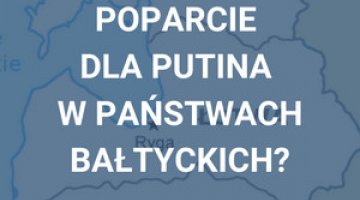Gazprom sells off its assets in Lithuania
On 17 June Prime Minister Algirdas Butkevicius announced that Gazprom had sold off its shares (two packages of 37.1% each) in two Lithuanian state-owned companies from the gas sector: Lietuvos dujos (gas distribution) and Amber Grid (transmission and infrastructure development). It received approximately 120.7 million euros for the sales. At present, the State Treasury controls packages of nearly 97% of shares in both companies (the second foreign shareholder, German E.ON Ruhrgas, had previously sold off its shares in both companies). Lithuania assured Gazprom that there would be no disruptions in the transit of gas to the Kaliningrad Oblast but it did not withdraw the complaint it had filed against Gazprom at the Arbitration Court in Stockholm over consecutive increases in the gas price which are contrary to the gas contract for 2004-2015.
Commentary
- By taking control of Gazprom’s shares, Lithuania has marked the beginning of new relations between Vilnius and the Russian company which, albeit weakened, will remain the key gas supplier following the opening of the LNG terminal in Lithuania (at present Gazprom is the only gas supplier to the entire Baltic Sea region). The intention of the Lithuanian government is to base relations with Gazprom on transparent commercial principles which do not go beyond economic co-operation. Until now Gazprom has controlled not only the gas networks (preventing gas supplies from being diversified and imposing high gas prices and thus blocking the possibility to negotiate them) but has also sought to develop a strong political ascendancy in Lithuania by maintaining intermediaries in gas supplies. One of them was Viktor Uspaskich’s company. Uspaskich established the Labour Party which currently forms part of the ruling coalition. Dujotekana, a company informally linked with the Social Democrats who were formerly in power, was another intermediary. Lithuania’s secret services investigated the activity of the latter and its political ties.
- Both the right-wing and left-wing governments in Lithuania have been consistently implementing the EU regulations included in the third energy package (separation of gas supplies from transmission and distribution), going against Gazprom's interests . This makes Lithuania the first EU country to persuade the Russian company to comply with the principles of the EU gas market. Gazprom's long-held objection to Lithuania's measures was overcome when the company's ally in the Baltic states, Germany’s E.ON Ruhrgas, agreed to sell off its shares in the Lithuanian companies and withdrew from the Lithuanian market. Lithuania reformed the entire energy sector following the third energy package. Ownership separation was also introduced in the electricity sector.
- Now that it has taken control of the gas networks, the Lithuanian government is seeking to establish a gas market –an electricity stock exchange has been successfully operating since 2011. This intention will be successfully implemented when imports of gas through the LNG terminal in Klaipeda are launched in 2015 (Lithuania is planning to sign the first contract as early as July with Statoil). This event will coincide with negotiations with Gazprom about a new contract regarding long-term gas supplies to Lithuania after 2015 and the gas transit to the Kaliningrad Oblast. This will be a trial of strength for Lithuania in its new relations with Gazprom. With the competition between only two gas suppliers on the market it is not very likely that Gazprom's new price offer will be substantially lower than the present one. Similarly, the LNG supplier will also bear Gazprom’s offer in mind when developing its own.





